Posted in Comment on 04/01/2010 02:49 pm by Stephen Tindale
This week, I have been to Poland to talk at a Demos Europa conference on CCS in that country. Poland has the ninth largest global coal reserves, but does not have significant oil or gas reserves. In 2006, 93% of its electricity came from coal and 91% of its heat, so 58.5% of total energy was from coal. Its economy is growing, despite the recession, and a significant number of existing coal stations will have to close over the next 15 years.
read more »
Posted in Comment on 12/01/2009 04:20 pm by Stephen Tindale
It will be cheaper to control climate change than not to control it, as the Stern Review memorably said. However, that does not mean that it will be cheap.
read more »
Posted in Comment on 03/01/2010 06:53 pm by Stephen Tindale
This morning, the Centre for European Reform (www.cer.org.uk) launched the report, which Simon Tilford and I have written, about what the EU should do about CCS. We argue that large-scale demonstration will require public money, and that widespread and rapid deployment will require regulation, ideally at European level.
read more »
Posted in Comment on 05/10/2010 10:07 am by Stephen Tindale
The world faces an urgent climate crisis. There is no time to lose. However, the UK general election has produced no winner and, at the time of writing, it is still not clear who will form the next government.
read more »
Posted in Comment on 11/12/2009 12:49 pm by Stephen Tindale
On 9 November Ed Miliband, the UK Energy and Climate Change Secretary, published National Policy Statements outlining the government policy on energy. These are intended as guidance to the new Infrastructure Planning Commission (IPC), which, from next March, is due to grant or refuse planning permission on major energy and transport infrastructure projects. The statements are good on renewables, nuclear and electricity networks, but less good on coal.
read more »
Posted in Comment on 10/12/2009 12:27 pm by Stephen Tindale
Last Friday Eon, announced that it is postponing its plan to build a new power station in Kent that would have demonstrated that carbon capture and storage (CCS) technology can be retrofitted. The same day, the energy regulator, the Office of Gas and Electricity Markets (Ofgem), published a report accepting that energy prices would have to increase, but would increase much less under a move to low-carbon energy than under a scenario under which the UK relies on gas and oil. And today, the Committee on Climate Change launches its first report on how the UK is doing on meetings its carbon budgets – basic message: ‘not nearly well enough’.
read more »
Posted in Comment on 08/13/2010 02:24 pm by Stephen Tindale
The US Congress broke up for the summer without any progress on climate or energy legislation. The chances of getting any legislative progress on cap-and-trade, which have been small for some time, now look miniscule. However, rather than giving up, the Obama administration has responded with three actions that are signs of serious commitment.
read more »
Posted in Comment on 12/13/2013 02:41 pm by Stephen Tindale
Friday the 13th – and reasons to be gloomy about UK energy policy
read more »
Posted in Comment on 05/13/2010 10:23 am by Stephen Tindale
The UK has a new government and the prospects for climate policy are mixed. The promised policies on aviation and coal are stronger than those of the former Labour government. The approach to renewables is similar to that of Labour. However, the approach on nuclear power looks like a recipe for muddle and delay.
read more »
Posted in Comment on 01/14/2010 04:42 pm by Stephen Tindale
Today, I attended a conference organised by Business for a New Europe and the Centre for European Reform on Is the EU good for business?. The general answers was (unsurprisingly, given the organisers) ‘yes, generally, but could be better’.
read more »
Posted in Comment on 07/14/2009 08:02 pm by Stephen Tindale
On Monday, 13 July 2009, Ed Miliband, the UK Energy and Climate Change Secretary, opened the Little Cheyne Court wind farm in Kent. With a capacity of just under 60Mw, this is the largest wind farm in South East England.
read more »
Posted in Comment on 05/14/2014 11:47 am by Stephen Tindale
The Economist has published my short article on why we need energy efficiency plus all clean energy sources: renewables, carbon capture and storage and nuclear.
read more »
Posted in Comment on 09/15/2011 02:07 pm by Stephen Tindale
Is gas sufficiently low-carbon to be an adequate bridge technology? No – it’s emissions for every unit of electricity produced are over three times as high as emissions from nuclear power.
read more »
Posted in Comment on 12/17/2010 02:08 pm by Stephen Tindale
UK Energy Secretary, Chris Huhne, has proposed a radical overhaul of the UK’s electricity market. This is good news, but the government must do more to combat fuel poverty.
read more »
Posted in Comment on 07/17/2009 07:33 pm by Stephen Tindale
On Wednesday 15 July 2009, the UK government published its plan to make the UK a low carbon economy. It is good on electricity, quite good on energy efficiency and heat, but bad on transport.
read more »
- Tags: carbon capture, carbon tax, CCS, CHP, climate change levy, coal power, decarbonisation, energy efficiency, fuel poverty, nuclear power, renewables, statistics, wind power
Posted in Comment on 11/17/2009 08:27 am by Stephen Tindale
Presidents Hu and Obama met today in Beijing and climate change was high on the agenda. China and the US are now the two largest producers of greenhouse gas emissions, responsible for over a third of total annual global emissions – though the US has caused 30% of the total historical contribution, whereas China has contributed just 7%, and US per capita emissions are 23.5 tons, whereas China’s are 5.5 tons.
read more »
Posted in Comment on 04/18/2010 03:04 pm by Stephen Tindale
The manifestos of the three main UK political parties, Conservative, Labour and Liberal Democrat, all agree that climate change is an extremely serious issue and that tackling it can be done in ways which enhance energy security and strengthen the UK economy.
read more »
Posted in Comment on 02/18/2010 09:41 pm by Stephen Tindale
In November 2009, 3% of OECD electricity was generated by renewables other than hydro. 14% came from hydro. And this was only 17% of what electricity was then used, not total energy used.
read more »
Posted in Comment on 01/18/2010 07:08 pm by Stephen Tindale
President Obama has done more to control climate change than President Bush ever did. However, that is hardly setting the bar very high.
read more »
Posted in Comment on 03/19/2014 07:23 am by Stephen Tindale
It’s time for energy policy wonks to move beyond the TLAs (three letter acronyms) and talk human.
read more »
Posted in Comment, Policy on 11/19/2015 09:57 am by Stephen Tindale
UK climate and energy policy are not perfect, but are in significantly better shape this morning than they were yesterday morning
read more »
Posted in Comment on 04/02/2012 12:54 pm by Stephen Tindale
The UK is running another competition on CCS. But practical progress so far has been precisely zero. And Eon and RWE have pulled out of their UK nuclear joint venture. So there’s a real risk that the UK will experience another ‘dash for gas’ without CCS.
read more »
Posted in Comment on 11/20/2009 11:22 am by Stephen Tindale
This week, I have been to Brussels for meetings on energy efficiency, renewables, nuclear and CCS. The now-ratified Lisbon Treaty says that there will, in the future, be a common energy policy, but this is unlikely to have much practical impact, but the EU has achieved much in important areas.
read more »
Posted in Comment, Policy on 06/24/2015 09:03 am by Stephen Tindale
Key quotes from, and a few of my comments on, the excellent Lancet Commission report
read more »
- Tags: 'cap-and-trade', carbon tax, CCS, coal power, decarbonisation, energy efficiency, EU, nuclear power, Public health, renewables, solar power, wind power
Posted in Comment on 11/22/2014 10:08 am by Stephen Tindale
Simon Henry, Chief Finance Officer of Shell, spoke at the launch of my policy brief on international climate negotiations. Afterwards I interviewed him for CER’s website.
read more »
Posted in Comment on 10/22/2010 08:52 am by Stephen Tindale
The UK government has cut spending on climate schemes less than it has cut most other schemes. But is has cut local government grants by more than a quarter, so local government must play a greater role on energy efficiency schemes. In addition, the government should have made winter fuel payments means-tested.
read more »
Posted in Comment on 06/23/2009 08:46 am by Stephen Tindale
Burning coal is an extremely damaging way to generate electricity. Coal has a very high carbon content, so is a major source of greenhouse gasses. Burning it also results in pollutants that are directly damaging to human health, such as sulphur dioxide.
read more »
Posted in Comment on 02/24/2011 07:34 am by Stephen Tindale
The European Investment Bank increased its lending to projects to help control climate change to €19bn in 2010. This was a 19% increase over the 2009 figure and meant that climate projects accounted for almost a third of total EIB lending.
read more »
Posted in Comment, Policy on 02/24/2014 08:05 am by Stephen Tindale
The Conservative Party is planning new subsidies for coal power stations. This is a striking historic reversal, because the Tories have traditionally been anti-coal.
read more »
Posted in Comment on 03/24/2010 09:58 am by Stephen Tindale
Last week, the Norwegian government announced that it is on track to meet its new renewables target for 2011. On the face of it, this isn’t significant. However, Norway is significant on climate change and has played a major role in climate policy for many years.
read more »
Posted in Comment on 03/24/2011 04:46 pm by Stephen Tindale
Yesterday’s UK Budget wasn’t that bad for climate protection, although it wasn’t nearly as good as it should have been. Announcements on energy and the promised Green Investment Bank were quite good, but those on transport were awful.
read more »
Posted in Comment on 10/24/2016 05:09 pm by Stephen Tindale
Last week the Sun published an article by me on shale gas https://www.thesun.co.uk/news/1997618/as-a-lifelong-green-im-convinced-frackings-the-only-solution-to-energy-problems/. The journalist I worked with on the text was excellent, and I had full editorial control. In the article I say that shale gas is part of the answer. The headline writer then wrote that I think it is “the only solution”. I don’t. […]
read more »
Posted in Comment on 04/26/2010 03:48 pm by Stephen Tindale
This morning I attended an event called ‘Ask a Climate Question’ organised by a coalition of environment and development groups. The most striking aspect of the discussion was that, with the exception of nuclear power, there was broad consensus among the four parties.
read more »
Posted in Comment on 04/26/2012 12:41 pm by Stephen Tindale
Germany is planning several new coal and gas power stations – without CCS – to replace its nuclear stations. This is bad for the climate and also a waste of money.
read more »
Posted in Comment on 01/26/2010 12:24 pm by Stephen Tindale
Yesterday, I attended a talk by Pat McFadden, a minister in the UK’s Business Department, about how the UK should move to a low-carbon economy. His main point was that the UK is still a manufacturing economy, despite the common view that everything manufactured is now imported. He also talked about the enormous opportunity for people in the UK to make wind turbines.
read more »
Posted in Comment on 05/27/2010 11:29 am by Stephen Tindale
The new UK government has now announced its legislative programme for the next 18 months and there is to be another energy bill. This is a good Bill and should be supported. The government has also announced how it will begin to reduce the deficit.
read more »
Posted in Comment on 09/27/2010 01:38 pm by Stephen Tindale
Ed Miliband was a good Energy and Climate Change Secretary, so the UK now has a ‘green’ Prime Minister, ‘green’ Energy Secretary and ‘green’ Leader of the Opposition. Now for some delivery…
read more »
Posted in Comment on 03/28/2011 07:03 am by Stephen Tindale
Yesterday’s election in the German region Baden-Württemberg, one of Germany’s richest regions, saw Angela Merkel’s CDU lose power after over half a century in office and there can be little doubt that the campaign was heavily influenced by the Japanese nuclear issue.
read more »
Posted in Comment on 12/29/2009 05:13 pm by Stephen Tindale
In the words of Nobel-prize winning chemist Paul Crutzen, we live in a new geological era – the anthropocene. He chose this name because, since the industrial revolution, the human influence on climate has been so great that we are already engineering the climate, albeit not deliberately.
read more »
Posted in Comment, Technology on 07/29/2011 09:43 am by Stephen Tindale
Comments on Jonathon Porritt’s arguments against nuclear power.
read more »
Posted in Comment, Policy on 07/30/2016 06:15 am by Stephen Tindale
Dear Greg, Congratulations on your appointment to run BEIS. I welcome the creation of the new department (see https://climateanswers.info/2016/07/15-july-2016-new-british-government-a-step-forward-for-climate-strategy/). And it is great to have you back working on energy and climate change. I also welcome your decision to review the Hinkley Point C proposal, following yesterday’s Final Investment Decision by EDF. The UK needs […]
read more »
Posted in Comment on 12/03/2013 11:57 am by Stephen Tindale
UK energy policy is in utter confusion, but is EU policy any better?
read more »
Posted in Comment on 10/29/2009 08:00 am by Stephen Tindale
President Obama has unveiled a $3.4 billion programme to upgrade the US electricity grid, turning it into a ‘smart grid’. This will make it more efficient, so that less energy is lost during transmission and distribution, and it will be easier to harness renewables, including intermittent ones like wind and solar.
read more »
Posted in Comment on 09/29/2009 04:50 pm by Stephen Tindale
Angela Merkel’s victory in Germany’s election was not unexpected. What was less clear was who her coalition partner would be, but we now know that it will be the FDP. This party is liberal, in both economic and social senses. It is also very pro-business and in favour of tax cuts and is now arguing for reductions in subsidies.
read more »
Posted in Comment on 12/03/2009 09:53 am by Stephen Tindale
Yesterday I went to Brussels for a seminar on CCS with Ruud Lubbers, who used to be prime minister of the Netherlands and is now running the Rotterdam Climate Initiative.
read more »
Posted in Comment on 12/31/2009 03:35 pm by Stephen Tindale
The lack of substantial progress at Copenhagen, though not unexpected, has left many people close to despondency on climate change. There is now a serious danger that they will lose interest. More worrying is the danger that the media will lose interest, leading to politicians doing likewise.
read more »
Posted in Comment on 07/31/2010 07:05 am by Stephen Tindale
The European Commission has done well in securing some – though not nearly enough – money to support renewables and CCS from the European economic recovery plan and from auctioning permits under the EU’s emissions trading scheme. By comparison, EU countries paid out €3 billion in national coal subsidies in 2008 alone. All OECD countries together give $400 billion every year in subsidies to fossil fuels, compared with $45 billion to nuclear and $27 billion to renewables, according to the International Energy Agency.
read more »
Posted in Comment on 02/04/2010 01:00 pm by Stephen Tindale
On Tuesday 2 February 2010, European Union member states agreed to European Commission proposals on how to distribute billions of Euros collected under the Emissions Trading Scheme (ETS) to CCS and renewable energy projects.
read more »
Posted in Comment on 01/04/2010 12:54 pm by Stephen Tindale
For the next six months, Spain holds the Presidency of the EU and, from the start of February, there will be a new European Commission. Spain and Germany lead the EU on wind and solar power, so there are good grounds to hope that the new leadership will result in a major speeding up of the low carbon transition.
read more »
Posted in Comment on 11/05/2009 11:52 am by Stephen Tindale
Warren Buffet, the iconic investor who has proved time and again that it is quite possible to ‘pick winners’, has made his biggest investment so far – $26 billion in one of the main rail operators in the US, Burlington Northern Santa Fe (BNSF). It is good news that Buffet regards rail as a future winner.
read more »
Posted in Comment on 10/05/2009 12:31 pm by Stephen Tindale
The Irish have voted to accept the Lisbon Treaty so, unless the Czech Republic or Poland decide unexpectedly to refuse to do so, the Treaty of Lisbon will come into force. This will not have a significant direct effect on climate and energy policy, but it will enable to EU to focus on more important things rather than endless institutional wrangling.
read more »
Posted in Comment on 04/06/2010 09:31 am by Stephen Tindale
Today, the general election campaign will almost certainly begin formally, though, in practice, it has been well underway all year.
read more »
Posted in Comment on 12/07/2009 02:54 pm by Stephen Tindale
The Copenhagen Climate Summit starts today. Prospects are looking better than they were a few weeks ago and the fact that President Obama has decided to attend the final negotiating session, rather than just for a token visit at the start, is excellent.
read more »
Posted in Comment, Policy on 12/07/2015 09:30 am by Stephen Tindale
The advance represented by Energy and Climate Secretary Amber Rudd’s ‘reset’ speech on 18 November has been pretty comprehensively destroyed by Chancellor George Osborne.
read more »
Posted in Comment on 01/07/2014 01:55 pm by Stephen Tindale
The German “Energiewende” is not doing as well as often claimed; but climate protection is too important for point-scoring or schadenfreude.
read more »
Posted in Comment on 06/07/2010 11:28 am by Stephen Tindale
Low carbon energy sources – renewables, CCS and nuclear – all require public financial support. In the UK, the new government has said that there will be no subsidy for new nuclear power stations. Before the general election, the Conservatives said that there would be no subsidy and the Liberal Democrats remain anti-nuclear. Without financial support, no new nuclear stations will be built. Nor will any renewables or CCS – offshore wind and CCS are, in the view of many, going to be even more expensive than nuclear.
read more »
Posted in Comment on 05/07/2009 12:13 pm by Stephen Tindale
President Obama’s meeting with the Pakistani President Asif Ali Zardari on 6 May understandably focussed on how to combat the Taliban and control Pakistan’s nuclear weapons.
read more »
Posted in Comment on 10/07/2011 07:03 am by Stephen Tindale
The EU has long prided itself on leading international efforts to control climate change. Today, the issue is nowhere near the top of the EU’s agenda, having been eclipsed by the economic downturn and the eurozone debt crisis.
read more »
Posted in Comment on 11/08/2011 03:47 pm by Stephen Tindale
Comment on the launch of the European Climate Foundation’s latest report, Power Perspectives 2030.
read more »
Posted in Comment on 10/08/2009 10:43 am by Stephen Tindale
The US budget deficit has more than tripled to a record $1.4trn (£877bn, €948bn) in the year to 30 September 2009, due to increased government spending and a big drop in tax revenues. So, how is the US going to pay for a transition to a low-carbon economy?
read more »
Posted in Comment on 04/09/2010 08:52 am by Stephen Tindale
We try to be optimistic and positive at Climate Answers; to emphasise what we support rather than what we oppose. However, that doesn’t mean that there aren’t things to oppose and condemn, and yesterday’s decision by the World Bank to give a $3.75 billion loan for a coal power station in South Africa is certainly one of them.
read more »
Posted in Comment on 12/09/2009 04:51 pm by Stephen Tindale
UK Chancellor of the Exchequer, Alistair Darling, today gave his pre-budget report to parliament. This included some good climate measures.
read more »
Posted in Comment on 03/09/2011 03:27 pm by Stephen Tindale
The European Commission published its Energy Efficiency Plan yesterday. It isn’t bad, and calls for combined heat and power to be made mandatory in some cases. The plan should be implemented without delay.
read more »
Posted in Technology on 06/23/2009 08:26 am by Stephen Tindale
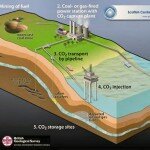
Coal has a very high carbon content, so is a major source of greenhouse gasses and the economic costs of polluting the atmosphere are not borne by the polluter, In economic jargon, ‘the externalities are not internalised’.
read more »
Posted in Policy on 02/23/2011 04:58 pm by Stephen Tindale
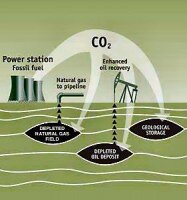
The EU has made some progress on large scale CCS demonstration projects, but needs to speed up.
read more »
Posted in Policy, Technology on 08/23/2010 04:21 pm by

With around 95% of its electricity generated from coal, Poland comes up higher in coal statistics than Australia, the US, South Africa or even China. The coal intensity of electricity generation in Poland is not only a legacy from the past, but also a conscious choice of consecutive Polish governments. As the most abundant energy resource in the country, coal is considered an important pillar of Poland’s energy security. And yet, despite the central position of coal for the energy sector and the environmental pressure from Brussels, there is little enthusiasm for CCS technology among Polish decision-makers and energy sector stakeholders.
read more »
Posted in Policy, Technology on 03/01/2010 01:16 pm by

Coal will be the biggest single source of electricity for decades to come. Yet the EU is doing far too little to encourage the take-up of carbon capture and storage, a technology which could make coal a low-carbon fuel. This failure threatens not only Europe’s leadership of global climate change policy but also its ability to profit from the emergence of a huge global market for equipment and expertise. Stephen Tindale and Simon Tilford argue that more public money is needed for the construction of demonstration projects, while regulation and strong market signals will be required to ensure mass deployment of the technology.
read more »
Posted in Policy, Technology on 03/01/2010 01:15 pm by

Coal will be the biggest single source of electricity for decades to come. Yet the EU is doing far too little to encourage the take-up of carbon capture and storage, a technology which could make coal a low-carbon fuel. This failure threatens not only Europe’s leadership of global climate change policy but also its ability to profit from the emergence of a huge global market for equipment and expertise. Stephen Tindale and Simon Tilford argue that more public money is needed for the construction of demonstration projects, while regulation and strong market signals will be required to ensure mass deployment of the technology.
read more »
Posted in Comment, Policy on 04/22/2015 03:41 pm by Suzanna Hinson
The EU should not buy electricity from countries with highly-polluting coal power stations, and should instead support efficiency and clean energy in these countries.
read more »
- Tags: biomass, carbon capture, CCS, CHP, coal power, decarbonisation, energy efficiency, nuclear power, renewables, solar power, wind power
Posted in Comment, Policy on 02/23/2015 02:10 pm by Stephen Tindale
CER has now published my policy brief on ‘State aid and energy: climate action is more important than the single market’.
read more »
Posted in Policy on 12/09/2016 12:07 pm by Suzanna Hinson
Our Director Stephen Tindale gave oral evidence on the economics of UK energy policy to the House of Lord’s Economic Affairs Committee on 15 November. He argued for a more diverse energy mix, more consistent policy and more rapid decision making on key issues. The Chancellor’s Autumn Statement said little about energy. The spring 2017 […]
read more »
Posted in Policy on 04/17/2010 05:53 pm by Stephen Tindale

All three main UK parties take climate seriously and promise to reduce emissions and expand low-carbon energy. They all recognise the energy security and employment benefits. This article includes quotations from the relevant parts of the manifestos of the three main parties on heat and electricity – energy efficiency, fuel poverty and energy production.
read more »
Posted in Technology on 12/29/2009 05:12 pm by Stephen Tindale

Geoengineering is the term given to proposals to try to control the climate through technologies, some of them new and bizarre, and unlikely to happen or to work if they did, some of them are new ways of applying old approaches and some of them new but likely to work.
read more »
Posted in Policy on 01/04/2010 02:25 pm by Stephen Tindale

Germany led the world on wind energy until 2007. In 2008, it was overtaken in terms of total installed capacity, though not percentage of energy coming from wind, by the USA. It remains the world’s top photovoltaic (PV) installer, accounting for almost half of the global market in 2007 – though this generates only about 1% of total electricity used in Germany.
read more »
Posted in Comment on 08/26/2015 01:53 pm by Suzanna Hinson
What can we expect from the new labour leader in terms of energy and climate policy?
read more »
Posted in Technology on 12/09/2009 09:48 am by Stephen Tindale
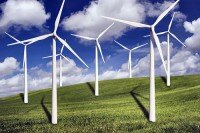
No form of electricity generation is entirely free of carbon emissions. So just how carbon free are the main types?
read more »
Posted in Policy, Technology on 10/12/2009 11:55 am by Stephen Tindale

Rapid and extensive demonstration of carbon capture and storage (CCS) is necessary to show that it works as well at larger scales as it does at smaller scales, and that it works throughout the generation, capture, transport and storage process.
read more »
Posted in Comment on 04/12/2014 05:54 am by Stephen Tindale
My CER blog on how Europe should reduce its dependence on Russian gas
read more »
Posted in Comment, Policy on 03/28/2015 07:30 pm by Stephen Tindale
Climate campaigners should be more pragmatic and more prepared to make compromises. Pragmatism often delivers progress; idealism rarely does.
read more »
Posted in Policy, Technology on 03/05/2010 03:01 pm by Stephen Tindale

There are several myths or misunderstandings that have grown up surrounding climate change and renewable energy. Both sides of the debate can be at fault. This article tries to debunk some of nonsense that is often cited as fact.
read more »
Posted in Comment, Policy, Technology on 10/23/2015 08:57 am by Stephen Tindale
The Committee on Climate Change sensibly calls for an ‘all of the above’ approach to decarbonisation.
read more »
- Tags: air quality, biofuel, biogas, biomass, CCS, decarbonisation, electric cars, energy efficiency, EU, nuclear power, renewables, solar power, tidal power, wave power, wind power
Posted in Policy on 01/18/2010 06:55 pm by Stephen Tindale

How well have Obama and Energy Secretary Chu done so far on promoting energy efficiency, renewables, CCS and electric vehicles? A very positive assessment is made by the Center for American Progress.
read more »
Posted in Policy on 06/01/2009 11:21 am by
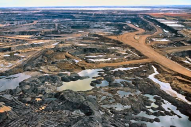
Climate change is a contentious topic in Canada, largely due to the nation’s long-standing ties to the fossil fuel industry. At the forefront of Canadian discourse on this topic is the Province of Alberta’s famous “dirty” tar sands oil production. This is followed closely by the coal-fired electricity industry. From a high-level perspective, these two well-established, carbon-intensive industries, combined with the provincial and federal governments’ reluctance to limit their emissions in a meaningful way, form the basis upon which Canada has historically failed to engage in climate change discussions and continues to fail to significantly address climate change.
read more »
Posted in Answers to your questions, Policy on 09/28/2009 07:49 pm by Administrator

What about boring old natural gas? I can’t find any mention of it anywhere on your site and I wonder how much you or your readers know about the recent revolution in unconventional “shale” gas which has meant some geologists think that there is nine times more natural gas available on a planetary scale than thought as little as two or three years ago.
Nick Grealy
read more »
Posted in Answers to your questions, Technology on 06/10/2009 12:50 pm by Administrator

Apart from CCS, there is much good sense on all sides of the debate on measures to reduce carbon emissions. Why haven’t you mentioned the ultimate medium term opportunity – nuclear fusion?
Leighton Upton
read more »
Posted in Repowering communities on 06/21/2010 10:09 am by Stephen Tindale

I am writing a book, with Prashant Vaze and Peter Meyer on the role that local, regional and state governments should play in increasing energy efficiency and promoting low carbon energy. This will be published by Earthscan in 2011.
read more »
Posted in Repowering communities on 08/06/2010 01:25 pm by Stephen Tindale

Rotterdam is now Europe’s largest port. It has a concentration of heavy industry, including oil refineries and power stations. So its contribution to climate emissions is substantial.
read more »
Posted in Books on 11/14/2012 02:46 pm by Stephen Tindale
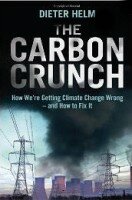
Dieter Helm, professor of energy policy at Oxford University, is a leading voice in European energy policy. During 2011, he acted as a special adviser to energy commissioner Gunther Oettinger. Helm has now written a new book: The carbon crunch: how we’re getting climate change wrong – and how to fix it.
read more »
Posted in Comment, Policy, Technology on 01/25/2017 09:47 am by Stephen Tindale
The low-carbon energy sectors – efficiency, most renewables, CCS and nuclear – should work together more strategically
read more »
- Tags: biomass, carbon capture, CCS, CHP, decarbonisation, energy efficiency, nuclear power, renewables, solar power, solar thermal, tidal power, wind power
Posted in Policy on 05/08/2014 09:29 am by Stephen Tindale

For climate and air quality reasons, we need more gas. Shale gas is less bad than liquified natural gas – and better than coal.
read more »
Posted in Policy on 04/05/2011 04:32 pm by Stephen Tindale
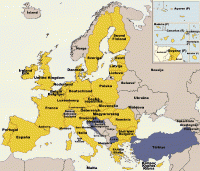
The EU should spend less money on agriculture and more on improving the econommies of poorer member-states and on climate protection.
read more »
Posted in Policy on 07/31/2010 06:22 am by Stephen Tindale

The European Commission has proposed that subsidies to hard coal should be phased out by 2014. This is good, but must be agreed by EU national governments, some of whom will almost certainly try to extend the deadline.
read more »
Posted in Policy, Repowering communities on 07/15/2011 09:00 am by Stephen Tindale

This is a summary and analysis of UK’s white paper on Electricity Market Reform and Renewables Roadmap, published this week.
read more »
Posted in Policy, Technology on 11/13/2009 10:49 am by Stephen Tindale

Yesterday (9 November 2008), the UK Energy and Climate Change Secretary, Ed Miliband, published National Policy Statements (NPS) outlining the government policy on energy. They consist of guidance to the new Infrastructure Planning Commission (IPC), which, from next March, is due to grant or refuse planning permission on major energy and transport infrastructure projects. The statements are area a mixed bag – good on renewables, nuclear and electricity networks, but less good on coal.
read more »
Posted in Answers to your questions on 03/22/2011 10:41 am by Stephen Tindale

Why can’t we get to clean energy without using nuclear power?
Russell Frerichs
read more »

























